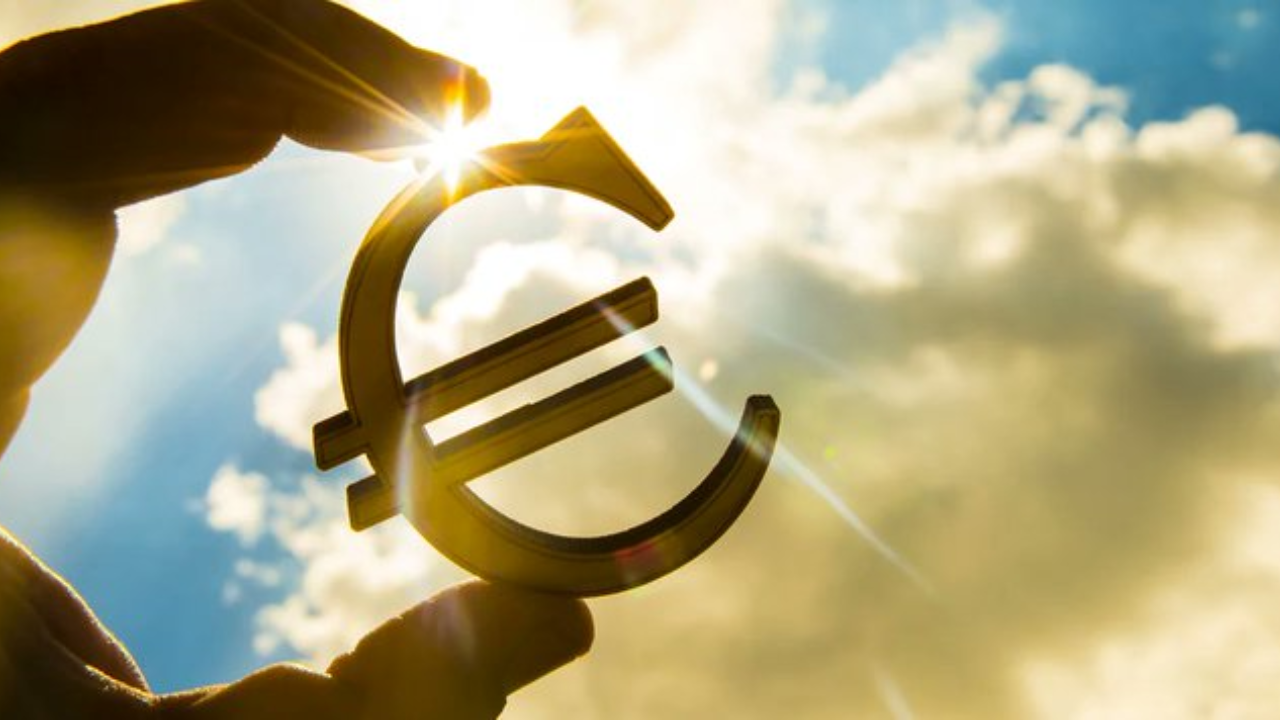
Post by : Naveen Mittal
The euro extended its recent weakness after France’s credit downgrade, a move that underscores the growing concerns about Europe’s fiscal health. On Friday, Fitch Ratings lowered France’s sovereign credit rating from AA- to A+, citing the country’s rising debt levels and fiscal stress. This downgrade marks a significant development, given that France is the second-largest economy in the eurozone. While the markets had anticipated some form of downgrade, the announcement still signals looming risks for the continent’s financial stability.
France’s downgrade came as the government’s debt burden continues to swell due to high public spending and persistent structural deficits. Although financial markets had largely priced in the downgrade beforehand, the rating cut raises red flags for investors concerned about sovereign risk. Analysts point out that while the downgrade may limit near-term gains for the euro, it is unlikely to cause a sharp collapse in the currency’s value.
According to Nick Rees, head of macro research at Monex Europe, “The muted reaction suggests that investors are not panicked but are keeping a close watch on further developments.” The downgrade may weigh on France’s borrowing costs, potentially affecting economic recovery in the region. Yet, the overall strength of the euro is supported by larger global forces, particularly expectations around the Federal Reserve’s future monetary policies.
The current outlook for the euro is shaped not only by fiscal concerns but also by monetary policy divergences between the European Central Bank (ECB) and the Federal Reserve (Fed). Many investors believe that the Fed’s easing cycle, driven by weakening U.S. economic data, will support the euro/USD exchange rate, despite temporary setbacks.
A report from MUFG analysts noted, “The widening policy divergence opening up between the ECB and Fed heading into year-end will help to lift EUR/USD towards the 1.2000 level.” However, breaking past recent resistance levels near 1.1800 remains a challenge, requiring clearer signals from central banks.
The upcoming Fed decision, set for September 16-17, is expected to be pivotal. Money markets are pricing in a 25 basis point rate cut, with a small chance of a 50 basis point reduction. Investors are closely monitoring Fed Chair Jerome Powell’s guidance and the “dot plot” projections that forecast future interest rate trajectories.
Currency strategist Carol Kong from the Commonwealth Bank of Australia noted, “In order to impact currencies meaningfully, Powell will need to out-dove the market by giving explicit hints about further cuts.”
The broader implications extend beyond rates. Any dovish signals could weaken the U.S. dollar, helping the euro regain ground despite France’s downgrade.
Beyond the Fed, other major central banks are also influencing currency markets. The Bank of England (BOE) and Bank of Japan (BOJ) are both expected to maintain current rates, although changes in their bond-buying programs or economic outlooks could shift investor expectations.
The sterling recently rose to its strongest level in a month, while the Japanese yen gained slightly against the U.S. dollar. Analysts are monitoring how these moves could ripple through the broader foreign exchange market, especially as global trade negotiations, such as U.S.-China talks in Madrid, add further uncertainty.
A significant factor supporting the euro is the high level of speculative net long positions against the dollar. Data from the week ended September 8 showed that traders held positions near a two-year high at $18.4 billion.
This suggests that investors are betting on a rebound for the euro, despite near-term challenges. A weakening dollar and dovish expectations from the Fed contribute to this positioning, while geopolitical tensions, such as trade disputes and sanctions, add to market volatility.
While monetary policy drives much of the market’s sentiment, geopolitical factors are equally influential. Talks between the U.S. and China are at the forefront, with Washington pushing for tariffs on Chinese imports tied to energy deals involving Russia.
Concerns about supply disruptions, particularly in oil and gas markets, create additional uncertainty. A potential slowdown in global growth, especially in key economies like China, also threatens to weigh on currency valuations and risk appetite.
In the short term, the euro faces headwinds from France’s credit downgrade and political risks across Europe. However, supportive monetary policy from the Fed and speculative bets on dollar weakness offer upside potential.
If Powell signals further easing, and if other central banks avoid tightening prematurely, the euro could rebound and break above resistance levels. Conversely, renewed fiscal pressures in Europe or worsening geopolitical conflicts could keep the currency range-bound.
Investors are advised to keep an eye on:
ECB and Fed policy announcements
U.S. inflation and job data
Trade negotiations and tariffs
Political stability in Europe and the Middle East
The euro’s recent slip following France’s downgrade is a wake-up call about the fragility of Europe’s fiscal health. Yet, broader global trends suggest resilience in the face of adversity. As central banks prepare for critical decisions, and investors digest geopolitical risks, the euro/USD exchange rate will remain at the center of financial markets.
With the Fed’s upcoming moves, high speculative positioning, and diverging monetary policies, the euro’s fate in the coming months will hinge on a complex interplay of economics and politics. Savvy investors should watch for shifts in policy signals, market sentiment, and geopolitical risks to navigate this evolving landscape.
#Euro #FranceCreditDowngrade #ECB #FederalReserve #GlobalMarkets #Forex #CurrencyTrends #FinanceNews #EconomicOutlook #USDollar










OpenAI's Revenue Soars to $4.3 Billion in First Half of 2025
OpenAI's revenue reaches $4.3 billion in the first half of 2025, marking a 16% increase from the pre

UAE Leaders Send Condolences to Saudi King Over Princess Abta's Death
UAE rulers and crown princes sent heartfelt messages to King Salman, mourning the passing of Princes

Brazil's Surplus Clean Energy Attracts Crypto Miners
Brazil's excess renewable energy is luring cryptocurrency miners. Companies like Tether and Renova E

Visa Tests Stablecoins to Make Global Payments Faster
Visa is testing stablecoins for international payments, aiming to speed up transactions and reduce t

Opera Unveils Neon AI Browser for Smarter Web Browsing
Opera introduces Neon, an AI-powered browser that automates tasks and enhances privacy, aiming to re

Albanese Visits Sheikh Zayed Grand Mosque in Abu Dhabi
Australian PM Albanese tours Sheikh Zayed Grand Mosque, highlighting peace, tolerance, and cultural